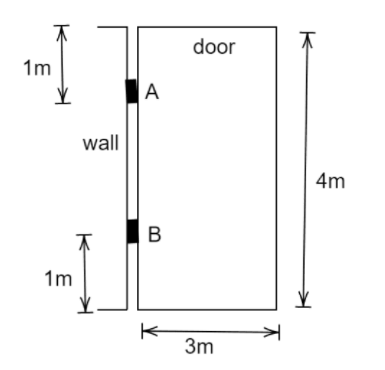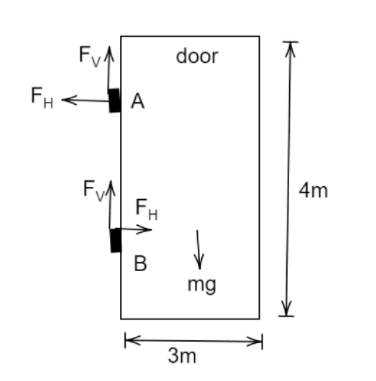Question
Question: A door of \(100\,kg\) mass which is supported by two hinges \(A\) and \(B\) on a wall is of size \(4...
A door of 100kg mass which is supported by two hinges A and B on a wall is of size 4m×3m as shown. If the force by hinges on the door are equal, find these forces exerted by hinges.

Solution
Find all the forces acting on the door, that is, due to gravity and then the force to balance that. There will be some horizontal force also on the hinges which will be equal and opposite. Finally, find the values of these forces and their sum will give us the required force exerted by hinges.
Complete step by step answer:
Forces acting on the door are mg in a downward direction because of its weight. An upward force FV on both the hinges to balance the downward force. If the door is rotated then a FH force is acted towards the left and to balance that same force is acted towards the right.

Therefore for this equilibrium position of the door we get,
2FV=mg
⇒FV=2mg=2100×10
⇒FV=500N
To calculate the horizontal force by the hinges we use the rotational equilibrium situation of the door that is net torque on the door will be zero
τ=2FV×1.5−2FH×1=0
Therefore we get,
FH=23FV
⇒FH=23×500=750N
Hence, the forces exerted by either hinge in magnitude is
F′=FV2+FH2
⇒F′=(500)2+(750)2
∴F′=25013N
Hence,the force by hinges on the door is 25013N.
Note: Torque is a measurement of how much a force exerted on an object rotates it.The state of a system in which the total angular acceleration is zero is known as rotational equilibrium. Two conditions must be met for an object to remain in equilibrium: both the net force and the net torque must be zero.
